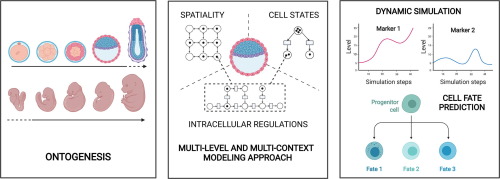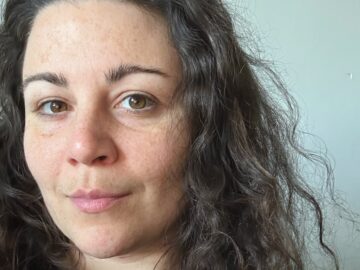Dr. Roberta Bardini
Post. Doc. Researcher
Politecnico di Torino,
Control and Computer Engineering Department
Roberta Bardini is a post-doc researcher at the Department of Control and Computer Engineering of Politecnico di Torino. Her research focuses on computational biology and bioinformatic approaches for analyzing and modeling complex biological systems, and on the computational design and optimization of biomanufacturing processes.
She earned her Master of Science in Molecular Biotechnology in 2014, from University of Turin, with a Research Thesis in electrophysiology. She started a PhD in Control and Computer Engineering at the Control and Computer Engineering Department, Politecnico di Torino, in 2015. During her PhD she worked in the field of computational biology. She developed a modeling approach for complex biological processes, such as ontogenesis, based on Nets-Within-Nets, an high-level Petri Nets formalism. She contributed to the bioinformatic characterization of nutraceutical products. She collaborated to the development of the Biology System Description Language (BiSDL), an high-level domain-specific language for the synthetic biology scientific community. She defended her PhD Thesis A diversity-aware computational framework for systems biology in 2019.

Bardini et al., Nets-within-nets for modeling emergent patterns in ontogenetic processes, Computational and Structural Biotechnology Journal, Volume 19, 2021, Pages 5701-5721, https://doi.org/10.1016/j.csbj.2021.10.008.
As a post-doc researcher, she is working to develop computational biology approaches to the modeling, optimization and design of biomanufacturing processes. She contributes to the scientific research, IPR protection, technology transfer, business plan writing and market analysis of the regenerative medicine market with a focus on computational biology approaches for biomanufacturing. She co-created the cultūrā project. In particular, with the support of several funded projects during the past years, she is collaborating to the development of Optimization via Simulation approaches to biofabrication of constructs for regenerative medicine and in vitro models of complex biological systems.
Since 2020, she is collaborating to the development of multimodal single-cell data analysis pipelines. The latter combine data-driven and model-driven strategies in the study of cellular heterogeneity, with a focus on the joint analysis of transcriptomic, epigenomic and electrophysiological data.
She recently started to explore the computational neuroscience domain, combining computational biology with electrophysiology to explore the relations between neuronal activity set points and synaptic plasticity mechanisms.

